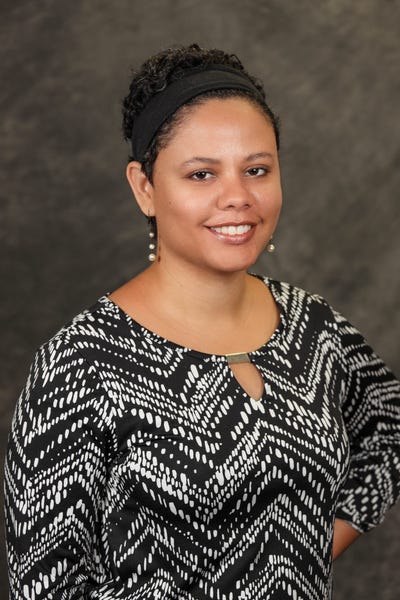CEO Pamela Diaz Takes Chicago-Based MSP Entara to Next LevelCEO Pamela Diaz Takes Chicago-Based MSP Entara to Next Level
Entara's unique XSP business model offers clients a hybrid MSP-MSSP experience.
January 18, 2022

In some respects, Pamela Diaz may seem an unlikely person to be the CEO of a highly regarded MSP. Diaz spent more than two decades working in finance, and not technology. She climbed her way up the chain of command at UBS, responsible for working directly with financial traders. By the time Diaz left the company, she was an executive director and global business manager for all of operations. Then she took on positions of head of global operations and interim CIO at a boutique equity investment firm. She said her leadership skills landed her both roles from the start.
And that’s when the unlikely became a reality.
As CIO, Diaz outsourced the firm’s IT work to YJT (You Just Trade), now known as Entara, a Chicago-based MSP that worked solely with traders. When she decided to leave her role at the investment firm, Diaz didn’t know exactly what she wanted to do next in her career. She had spent 26 years in the financial world and thought maybe it was time for a change. Entara’s then-CEO Linda Maclachlan got wind that Diaz was looking for something new. She immediately approached Diaz about her taking over as president of Entara.
“She just reached out to me and asked if I would be interested in running her firm. At first, I honestly thought she was kidding,” Diaz said.
Maclachlan was inspired by Diaz’s operational acumen. However, Diaz said she was nervous about the proposition.
“Over time I realized it was something that was scaring me because it was such a big change from what I was doing,” Diaz said. “What I know best is that if it scares you that’s the thing you should do.”
It’s been five years since Diaz took a leadership role at Entara, considered one of Chicago’s best places to work. This month she became the firm’s CEO.
In this Q&A with Channel Futures, Diaz discusses Entara’s unique hybrid MSP-MSSP business model, XSP, how the company addresses cybersecurity and accountability, and the role the channel will play for the future of her organization.
Channel Futures: Considering you didn’t have experience working within an MSP, what was the learning curve like going into this IT space at Entara?
Pamela Diaz: It was quite a learning curve. I spent a lot of time after hours digesting information. And I talked to my husband who works in IT about the inner workings of this technology space. It meant trying to understand the engineering side of it as well as the business side of it.
Knowing how to be an effective leader in IT doesn’t mean you need to know, for example, how to spin up a server, but you need to know what a server is. You must know the components and how it impacts the business.
CF: What has been the evolution of the company?
PD: Entara is in its 20th year. It was founded by Linda Maclachlan, who is still the majority owner of Entara. She was CEO but now is the board chair. Low-latency trading firms were our real focus at first. When you have a trader who can’t trade, or an analyst that is trying to configure the next trade, and they don’t have their internet or can’t get something done … the immediacy to support those types of people helps you really step up your game. We knew from that aspect that if you can support the financial world as an MSP, you can support anybody.
As we evolved as a company, we became known across the spectrum in Chicago, not just in the financial industry. And that’s how we’ve continued to grow. When I came in, we really started to …
… operationalize and find efficiencies in processes. That allowed us to become more scalable and ensured that our clients have that staying power because we guarantee that we are delivering the product we said we would.
As an MSP five years ago, we were just focused on making sure clients could get to their email, for example. We did what was needed to have that foundational security. We partnered with different security vendors that we thought would augment our ability to provide security without building a whole security component within the business.
However, over time we realized we knew our clients and we knew our foundation better than anybody else. So we brought security knowledge into Entara and started to grow our security practice from within. We decided to throw our hat into the ring and start conducting breach remediation. We now have a strong security foundation.
CF: Entara’s leadership coined the term XSP, or eXtended Service Provider. What does that mean and how is it a differentiator for the company?
PD: There are traditional MSPs and MSSPs. It’s fine if a company uses both, but often there’s no cohesive unit to unite the two. MSPs and MSSPs work in separate areas, as well as an overlapping area which makes accountability murky at best. At Entara we’ve combined both providers into one eXtended service provider, or XSP, to offer a complete, integrated IT and cybersecurity solution. We wanted to incorporate all of it – your help desk, your security – every aspect an MSP or MSSP does, we wanted to manage that for our clients.
Speaking of security, we also realized that our clients were a risk to us and that we were a risk to our clients. So we started implementing CIS (Center for Internet Security) controls. We have implemented those as part of our standards and our audit process. MSPs and MSSPs aren’t regulated. We’ve imposed self-regulation with these CIS controls and we’re also doing it for our clients.
CF: Who are your clients? Are they still traders? What verticals are they in?
PD: We’ve expanded outside of the financial vertical. Most of our clients are still in the financial industry, but we do have some in health care, insurance, manufacturing and nonprofits. We have expanded quite a bit over time. It used to be much different prior to going fully remote as a result of COVID. We have now expanded outside of the Chicago market significantly. At the end of the day the best client is one that is willing to invest in the technology we speak to them about. It’s about shoring up the risk.
CF: How do you see Entara evolving within the channel partner community?
PD: We went into the channel partner community last year to dip our toes in the water. It’s very interesting for us. There are a lot of opportunities that we see, and we continue to follow them. As we expand our ability, footprint and knowledge, it makes sense to get our name out there as much as we can. The channel offers us unique sales opportunities and we’re going to continue to grow that.
CF: There’s an uptick in mergers and acquisitions in the MSP community. Considering your background in the financial world, would you say you’ve noticed this trend?
PD: Yes, absolutely. There’s not a day that goes by in which I’m not contacted two or three times by someone who wants to have conversations about Entara and what our future looks like. The space has become much bigger and much smaller at the same time. You do see a lot of people trying to …
… gobble up the smaller shops to acquire new customers, rather than having a sales component. It’s interesting. There for a lot of opportunities out there for MSPs depending on what their stance is. There’s one company I was looking at that made five acquisitions in the last two years. There’s a lot going on.
CF: Do you know why this activity is happening?
PD: The MSP space is an interesting space. It seems as if when companies hit a certain threshold – whether it’s number of clients or revenue – they have a hard time getting past that number. For small MSPs the sales process is very arduous. It could be anywhere from three months to two years to capitalize on a sale. I think what happens is that some single-owner small MSPs struggle to find the secret sauce to get to that next level. When you reach a certain level, it becomes more expensive to bring top-notch people to a firm. If a firm can’t make that investment, it makes sense to sell the company or merge.
CF: You’re involved with initiatives promoting women’s advancement in the community. How are you promoting women and minority engagement at Entara?
PD: I’ve been a part of male-dominated industries my entire career; yet, I always thought that women would want to empower other women to succeed. That wasn’t always the case for me when I started in the financial world. And that was very disheartening. It was at that time that I decided that mentoring women is incredibly important to me. It’s something I’ve continued to do throughout my entire career.
When I came to YJT, there were only three women other than me in the organization. I said to the CEO and owner at the time that it’s one of my success criteria that we expand the number of women in technology as well as expand our diversity within our company. We have been working on both since the day I got here. Now women make up 25-30% of the employees at Entara. Mentorship is important to me, and I instill that in our leadership team. Our new head of HR is helping us create a diversity, equity and inclusion program that we’re rolling out this year.
I want my legacy to be that I mentored a myriad of amazing women and that I watched them succeed.
Want to contact the author directly about this story? Have ideas for a follow-up article? Email Claudia Adrien or connect with her on LinkedIn. |
Read more about:
MSPsAbout the Author
You May Also Like


